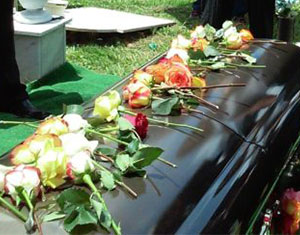An Experienced Attorney for Victims of Serious Injury & Wrongful Death in Georgia Hotels
Table of Contents
- What is Hotel Negligent Security in Georgia?
- Types of Issues that Cause Injury in Hotels
- Prove Liability and Causation in Hotel Negligent Security Cases in Georgia
- Compensation and Damages Recoverable in Hotel Negligent Security Lawsuits in Georgia
- Types of Hotel Negligence Cases We Handle
- Further Reading on Hotel Negligent Security
What is Hotel Negligent Security in Georgia?
Many families look forward to planning and going on vacation. Business travelers focus on the reasons they’re visiting and getting home soon. What most people don’t plan for is the possibility of injuries or being the victim of a crime while traveling.
Hotels of all types are the “home away from home” for people traveling for business or pleasure. They expect the hotel to keep the premises well maintained and to make them feel safe while they’re visiting. This includes adequate safety measures and updated maintenance.
The following are just some of the steps that can be taken to deter crime:
- Adequate overhead lighting: Especially in parking lots, hallways, and other common areas
- Security guards: Do they have them? Are they staffed 24 hours? Where they are stationed? Do they patrol the grounds frequently?
- After-hours access: Is a room key or other type of entry card required to enter the lobby and other main areas of the hotel?
- Security cameras: Do they exist? Are they in common areas where guests frequent, like parking lots, hallways, or lobbies?
- Your room: Is there a peephole on the door, working locks on doors and windows, including to adjoining rooms, and working lighting?
Types of Issues that Cause Injury in Hotels
There are numerous hazards and dangerous conditions that could exist at a hotel and result in serious injury. These include, but are not limited to:
- Broken security cameras.
- Faulty locks.
- Lack of security guards.
- Inadequate lighting.
- Improper staff training.
A hotel that does not keep its guests secure can be held negligent when someone is injured on the property.
Further Reading: Examples of Negligent Security that Lead to Serious Injury
Where Negligent Security Injuries Occur in Hotels & Motels
Hotels are responsible for keeping their customers and employees safe from foreseeable risks in all areas of its premises, including the:
- Hotel lobby.
- Parking lot or garage.
- Hallways.
- Stairwells.
- Guest rooms.
- Health facilities.
- Swimming pool.
Prove Liability and Causation in Hotel Negligent Security Cases in Georgia
When an injury happens to a hotel patron or employee due to a violent criminal attack as a result of the hotel’s negligence to provide adequate security by the hotel, the victim should be able to seek compensation for their injuries.
To hold the hotel liable for their negligence, a plaintiff must prove that:
- The hotel’s owner and/or management owed a duty of care.
- The hotel’s owner and/or management breached that duty of care and failed to take adequate steps to ensure the safety of guests.
- The guest’s harm and injuries were directly caused by that breach of the duty of care.
Holding a hotel liable for a fall injury is no easy feat. Remember, all of the criteria above must be established. Typically, proving that a liability for injury existed and that the liability was the direct cause of your injury is the easy part; proving that the hotel knew of the dangerous condition and failed to correct it in a reasonable amount of time can be challenging. This is especially true because what is considered “reasonably foreseeable” may vary depending on who you ask.
Further Reading: Understanding Foreseeability in Negligent Security Cases
Compensation and Damages Recoverable in Hotel Negligent Security Lawsuits in Georgia
Georgia does not have limits on the amount of compensation you can recover for hotel negligence. Therefore, you may be able to recover damages for:
- Medical expenses, current, and future.
- Lost wages, current, and future.
- Property damage, such as your phone, car, etc.
- Pain and suffering.
- Emotional and psychological trauma injuries.
- Decreased quality of life.
- Wrongful death.
Further Reading: What is Pain and Suffering and How Is Compensation Value Calculated?

















